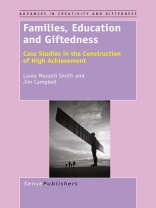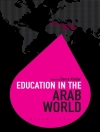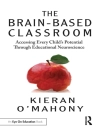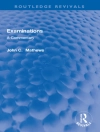What is it like to be YOUNG, GIFTED AND WORKING CLASS in contemporary England? How do working class family values support high educational achievement? What do researchers and policy makers have to learn about giftedness from working class families? These provocative questions are explored in this ground-breaking book. Most studies of giftedness focus on the characteristics of individuals, and draw upon psychological frameworks to understand them. Participants in most gifted education programmes are recruited disproportionately from the higher social classes. Sceptical of the concept of giftedness, Mazzoli Smith and Campbell question conventional methodologies, using a narrative approach to understand how four families of working class origins, each with a gifted child, construct their values in relation to education and social class. They explore the influence of their family histories, cultural values and life styles upon educational engagement and achievement. The authors show that gifted education policies are poorly matched to the values of these families and argue that much research into giftedness has been flawed by social and cultural discrimination. They propose an agenda for change in research paradigms in the giftedness field, which should be characterized by interdisciplinarity and more culturally relative conceptions of giftedness.
Tabela de Conteúdo
Series Preface; Preface; Acknowledgements; Introduction; Chapter 1 The Social Construction of Giftedness; Historical Perspectives; Conceptions of Intelligence and Giftedness ; Giftedness and Social Inclusion ; Ambiguities in Research on Giftedness; Policy Consequences; Giftedness and the Family Context; A Light at the End of the Neurological Tunnel?; Conclusion; Chapter 2 Studying the Family; Family Culture and Educational Attainment: The Risk of Determinism; The Contribution of Family Systems Theory; Sociology of the Family: Some Contemporary Ideas; Theorising the Family: A Possible Way Forward; Chapter 3 Methodology: An Approach through Narrative; Methodological Orientations; Foundations of a Composite Method; Introduction to the Case Studies; Chapter 4 The Booths’ Tale: Pursuing the Protestant Work Ethic; Background; The Structure of the Interviews; Upward Mobility; Social Class and Education; Giftedness; Chapter 5 The Breakwells’ Tale: Creating Cultural Capital; Background; The Structure of the Interview; A Commitment to Tradition; Social Class and Education; Giftedness; Chapter 6 The Newlands’ Tale: Going for Room at the Top; Background; The Structure of the Interviews; Financial and Social Status; Social Class and Education; Giftedness; Chapter 7 The Desmonds’ Tale: Discovering School as a Liberating Force; Background; The Structure of the Interviews; Damaged by Schooling; Social Class and Education; Giftedness; Chapter 8 Interpreting the Families’ Narratives; Addressing the Research Questions; Chapter 9 Implications for Policy and Theory; Introduction; Constructions of Giftedness; Families, Social Class and Educational Values; Chapter 10 Towards Cultural Relativism and Interdisciplinarity in Researching Giftedness; Introduction; The Case for Cultural Relativism; Bibliography; Index.












